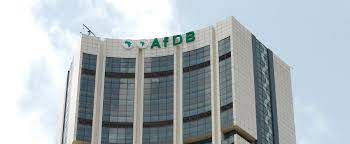The African Development Bank (AfDB)‘s Board of Directors has approved a grant of $29 million to Ghana for the construction of renewable energy infrastructure.
This will result in a 10% increase in renewable energy use in Ghana between now and 2030.
The funds will come from the Climate Investment Funds’ Scaling Up Renewable Energy Programme in Low Income Countries and will be used to build mini-grids, stand-alone solar photovoltaic systems, and solar-based battery facilities for storing excess power, a practice is known as net metering. Furthermore, the funding will assist in lowering the cost of solar-based storage infrastructure.
The Board’s most recent approval was for $29 million, bringing the total amount of money available for the project to $85 million. The African Development Fund, a Bank concessionary window, has committed $27 million, while the Swiss State Secretariat for Economic Affairs and the Ghanaian government have contributed $13.3 million and $16.0 million, respectively.
Read also: World Bank approves $390m for Kenya’s digital economy
The Entails of the Project AfDB Approved
The design of renewable energy systems, engineering of those systems, supply of those systems, construction of those systems, installation of those systems, testing of those systems, and commissioning of those systems are all included in the project.
It is anticipated that it will help to close gender disparities at the resulting level by producing 2,865 equitable jobs and livelihood opportunities, of which 30% will be for women and youth. This is because it will create 2,865 jobs and livelihood chances.
The African Development Bank (AfDB) has identified the promotion of the reduction of greenhouse gas emissions on the African continent as one of its High 5 priority objectives for the purpose of promoting the socioeconomic development of the African continent. As part of its New Deal on Energy for Africa, the African Development Bank hopes to light up and power Africa.
The African Development Bank Group, also known as the AfDB, is the leading development finance institution on the African continent. It is made up of three separate organizations, namely the African Development Bank (also known as the AfDB), the African Development Fund (also known as the ADF), and the Nigeria Trust Fund (also known as the NTF).
The African Development Bank (AfDB) works to advance the social and economic well-being of its 54 member nations across the continent through its presence on the ground in 44 of Africa’s countries and through its foreign office in Japan.
AfDB’s other pans for the continent
The African Development Bank (AfDB) has stated that it intends to utilise the private sector in order to overcome the numerous financial gaps that exist across the continent.
During a virtual pre-annual meetings press conference that took place on Thursday, April 20, 2023, Kelvin Urama, who serves as vice-president of the economic governance and knowledge management complex at the AfDB, discussed the bank’s objectives to boost lending in Africa.
“This year, the bank will focus on how to leverage the private sector to address the financial gaps for achieving the paramount actions and bring good transitions on the continent,” he said.
“To do this, we have structured five different and very interesting knowledge events for the meeting, one of them is the presidential dialogue. This will feature our heads of state having a dialogue with the bank’s president on the changing global financial architecture and the role of the multilateral development banks.”
A call for imaginative and creative thinking was made by Quaynor Solomon, vice president of the African Development Bank (AfDB) for the private sector, infrastructure, and industrialization complex. He was speaking in reference to the need to address difficulties in Africa.
Solomon stated that the gathering would provide an opportunity for the continent to discuss potential solutions to all of the difficulties posed by climate change on the continent.
He made the observation that it was vital for the continent to make use of innovative approaches in order to combat the problem of climate change in Africa.
